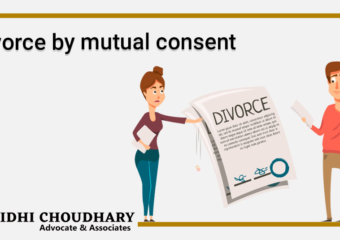Without Divorce second marriage
Bigamy (second marriage) is illegal in India and is punishable by the country’s penal code as a crime against marriage. Muslims are exempt from the bigamy statute, which is applicable to Hindus, Jains, Buddhists, Sikhs, Parsis, and Christians. According to the Hindu Marriage Act of 1955, bigamy is one of the grounds for divorce. The second wife has a claim to maintenance but not to any property rights. According to the Law Commission of India’s recommendation from August 2009, bigamy should be deemed a punishable offence, according to the Law Commission’s recommendation.
Without Divorce, second marriage is an offence in India.
Laws pertaining to a Second Marriage without Divorce: In India, a second marriage without divorce is either illegal or is seen to be an offence by various laws. The following laws have clauses addressing second marriages:
The Hindu Marriage Act: The Hindu Marriage Act’s Section 5 discusses the prerequisites for recognising marriage as valid. The husband or wife of the parties must not be alive at the time of the marriage, must not be alive, or the first marriage must have been dissolved at the time of the second marriage in order for the second marriage to not be deemed invalid under Section 11 of the Hindu Marriage Act.
According to Section 494 of the Indian Penal Code, bigamy, a penal offence, is committed if a person marries when his or her spouse or wife is still living at the time of the marriage. If the husband or wife suspects cheating, they may also report it under Section 415 of the Indian Penal Code.
The presumption clause is specified in relation to the facts regarding human actions under section 114 of the Evidence Act.
Bigamy Punishment Under Different Laws
Bigamy is punishable by Section 17 of the Act, which specifies that it would be treated as a criminal offence and subject to the provisions of Sections 494 and 495 of the Indian Penal Code.
Indian Penal Code: Bigamy is punishable by up to seven years in prison, a fine, or both, according to Section 494 of the Indian Penal Code. According to Section 495 of the Indian Penal Code, a person who commits bigamy by concealing the fact of his or her previous marriage faces a sentence of up to 10 years in jail, a fine, or a combination of the two.
Additionally, there are several personal laws that specify provisions about second marriages and their legal status:
Bigamy is prohibited by Section 5 of the Parsi Marriage and Divorce Act and is either penalised under Section 494 of the IPC or dissolved.
Although bigamy is not directly mentioned in this Act, it is said that it is punishable under section 419 of the IPC if the individual getting married had a spouse who was still alive at the time of the marriage. The registration form for marriage is solely for bachelors or widows/widowers.
Special Marriage Act: Bigamy is a crime under sections 494 and 495 of the Indian Penal Code, according to Section 44 of the Special Marriage Act.
Muslim Law: Bigamy is not directly mentioned in Muslim law, but the Quran mentions that a man may marry four times in his lifetime or have four wives, subject to the requirement that he treat each wife with respect, love, and equality; otherwise, he may only have one wife.
When is a second marriage regarded as legal?
Even though second marriage is prohibited in India, there are some circumstances when it may be acceptable, including the following:
If the court with authority declares the person’s first marriage invalid,
If the individual getting married a second time has a missing spouse who has been missing for seven years and no one has heard from them, the other party needs to be made aware of this.
If there is no evidence to suggest that the second marriage violates any of these qualifications or exceptions,
Legal Rights for Second Wife: The second wife has no legal rights, but there are remedies, because a second marriage during the duration of a first marriage has no standing because it is void. The second wife may launch a case for cheating if a guy marries a woman while still in the midst of his first marriage without disclosing the previous marriage.
Status of the Children Born out of Second Marriage: According to Sections 11 and 16 of the Hindu Marriage, if a kid is born from a void marriage, that child will be treated as legitimate since if the marriage of the child’s parents had been valid, the child would also have been treated as legitimate. The child has a lawful and legitimate right to all of his or her father’s or mother’s property, save for the ancestral joint family property, because the child is legitimate.
Sarla Mudgal v. Union of India & Ors: In this case, it was held that one personal law cannot make the marriage conducted according to the other personal law dissolved. If a person converts himself/herself for marrying a second time the marriage would be considered void and the person committing the act will be charged under section 494 of the Indian Penal Code.
Under the Parsi Marriage and Divorce Act, there is a provision which states that even if the person converts himself/herself, that person will have to adhere to Parsi law, and under Parsi law, bigamy is a punishable offence. Therefore, in Parsi law, conversion is not an option for second marriage without divorce.
How to file for divorce?
If the person has committed bigamy, then the other spouse can file for divorce on this ground by following the given procedure.
- Get in touch with a divorce-focused advocate.
- Then, after carefully considering all the relevant information, he or she will create a legal notice stating that you wish to file for divorce on the basis of bigamy, which must be signed by both the party and the attorney.
- The family court will receive petitions based on the evidence presented, and the date for the hearing will be set by the court.
- On the specified hearing day, the parties must appear.
- The judge will issue the decree after hearing all the available facts and evidence.
Get in touch with the best matrimonial lawyer
Conclusion: In India, marriages are mostly performed according to personal law. Parsi Law and Hindu Law make it clear that a second marriage is void. In Islam or Muslim law, four marriages are allowed only if the husband can give equal rights to all the wives. Also, a woman can remarry only after the dissolution of her first marriage. (With Inputs From Lawtendo)












